 Have you ever wondered ‘what if’ history turned out a little differently? What if John F. Kennedy wasn’t shot; what if Charles II had a legitimate heir?
Have you ever wondered ‘what if’ history turned out a little differently? What if John F. Kennedy wasn’t shot; what if Charles II had a legitimate heir?
Historical fiction authors have a great deal of respect for what actually happened in history and will undertake years of research to ensure they get it right. But once in a while, it’s fun to let the imagination loose and contemplate an alternate reality.
This is what an illustrious group of historical fiction authors did. In honour of the upcoming 950th anniversary of the Battle of Hastings, when King Harold of England was defeated by William the Conqueror, they have released 1066 Turned Upside Down, a speculative anthology of short stories that contemplates different outcomes leading up to the Battle of Hastings.
1066 Turned Upside Down is a bold, entertaining collection. The stories are beautifully crafted, full of period detail and authenticity. The author’s notes help the reader, who may not be well-versed in this era of history, to appreciate what was different and to prompt additional thought. The authors are Joanna Courtney, Helen Hollick, Anna Belfrage, Richard Dee, G.K. Holloway, Carol McGrath, Alison Morton, Eliza Redgold, and Annie Whitehead.
Today, some of the authors have dropped by to chat about the anthology, speculative fiction and their work.
Tell us how this project started. Why celebrate the 950th anniversary of the Battle of Hastings with speculative fiction instead of a historical anthology.
Helen Hollick: The idea was Joanna Courtney’s: we were guest authors together at the Battle of Hastings re-enactment in October 2015 and we had a conversation (in between doing talks and book signings) about ‘what if’; then earlier this year Joanna mailed me with, ‘What if we were to do a what if collection of short stories?’
I jumped at the chance because I so wished that I could have written a different ending to my novel about the events that led to Hastings – Harold the King (UK title / I Am The Chosen King US title). Part of the idea as well was to have a bit of fun with history, something you cannot do when writing ‘straight’ historical fiction as facts have to remain facts. With 1066 Turned Upside Down we set out to bend (or completely undo!) the facts.
Part of the original plan was to have a short introduction to each story about the ‘facts’, and to add suggestions for further discussion which could be suitable for schools or writer’s groups.
Joanna had suggested a couple of possible established ‘1066’ authors to join us, and I put forward authors Alison Morton, Anna Belfrage and Richard Dee because I knew they would come up with something fabulous based on their own genre of writing.
I loved the chance to be able to alter two scenes that appear in my novel: what if Harold had not been elected King in the first place, and what if Duke William’s fleet had been destroyed at sea by the English? The latter is something I firmly believe happened – just a pity the facts didn’t pan out as they do in my story. (Sssh not saying any more detail: Spoilers!)
In the spirit of pure speculation, what are your thoughts on how post-Hastings Britain would look like had the Saxons won?
Annie Whitehead: I’m of the opinion that, in general, the Normans were (in the style of 1066 And All That), a ‘bad thing’. The Anglo-Saxon system of government was very sophisticated and I don’t know that the conquest added much of value to the lives of people living in England. Had Hastings gone the other way, then I suspect we would not have gone to war with France quite so often over the succeeding centuries and perhaps our ties to Scandinavia might have strengthened. We kept our language anyway, but perhaps our spelling would have developed along more logical lines! I’m not convinced that Harold would have remained king for long, though. In theory anyone could be elected king, but in practice it was usually someone of royal birth, and he set a precedent there which other, powerful nobles might have wished to follow.
When most people think of the Battle of Hastings, they naturally think about battles and armies. But in this speculative anthology, many of the stories focus on the women (wives, mothers, and daughters). What are your thoughts on their influence at that time?
Alison Morton: When I was younger the unremarked lives of other women, duchesses to beggars, who made up fifty per cent of the population, were peripheral and hidden in traditional women’s auxiliary roles as wives, mothers, sisters and servants. Only exceptional heroines like Livia Drusilla, Joan of Arc or Queen Elizabeth I were highlighted. And exceptional was the exact word.
Historical research, writing and public awareness of history have moved on and women’s roles, especially the influencing and connecting ones of the early medieval period, are being teased out from the records. Historical fiction reflects the time it’s written; in 2016 it would be unthinkable to leave women on the sideline, however elusive they seem to be in the record. We just need to use different research methods like extrapolation and double cross-checking.
I’m convinced that women like Matilda of Flanders and Emma of Normandy with their connections across half of Europe weren’t just wives running the palace. Their influence, power and wealth were considerable, reinforced by their personalities; it was the latter that made the difference in what and how they delivered as much as it does today.
Carol McGrath, you write about the women of the Godwin family and in The Dragon-Tailed Star, you tell the story through Harold’s daughter Thea. What draws you to this family?
Carol: Originally I was drawn to Edith Swan-Neck’s story. She was a handfasted wife to King Harold. She was romanticised by the early Victorians who were looking for a pre-Conquest identity, particularly as in the early decades of the 19th C, Napoleon and the French had been a threat. I found her story when looking at The Tapestry in Bayeux and was fascinated by the reference to her in The Waltham Chronicle. I wanted to write about these women’s lives as realistically as I could and using mentions in chronicles and historians’ research about 11thC noble women I felt I could try to make them live through the pages of a novel .
Edith ( Elditha) identified Harold’s body according to this chronicle after the Battle by marks only known to her. The Chronicle was written fifty years or so after the event. However, the monks who accompanied Edith to the battlefield were named which gave the story a degree of credibility. I began to think of what it was for women to lose their men in such a battle. It was just so moving.
The Bayeux Tapestry depicts a vignette showing a burning house before the battle. It shows a woman and her son fleeing from it. The house is clearly two storey and the woman and child are nobly dressed. These are particular people even though they are not named. Since only three women are shown on The Bayeux Tapestry and since the first is possibly Harold’s sister who was a Prioress at Wilton Abbey in the early 1060s but died before 1066 and the second is identified as Edith Godwin, Queen to Edward the Confessor it is very likely that this woman could be Harold’s handfasted wife- so think some Historians, notably Andrew Bridgeford and Emma Mason. It is thought that all three women are connected to the Godwins. The Tapestry, is, after all, Harold’s and William’s story.
I was hooked by these noble women’s stories and what I could discover- what it was like to be a noblewomen during this period, their homes, how did they dress, look after families, childbirth, medicine and so on. Of course, poor Edith Swan-Neck was set aside by Harold for political reasons and forging of alliances when he was crowned king. He married Aldgyth of Mercia in a Christian ceremony. When I wrote Edith’s story, and it is a mix of fact and fiction, since with women who are but the footnotes of history one has to speculate, I discovered that her two surviving daughters by Harold had fascinating stories too.
Gunnhild, Harold’s younger daughter eloped from Wilton Abbey with a cousin of William the Conqueror and Gytha (Thea) the protagonist of The Long-Tailed Star made a spectacular marriage to Vladimir, a prince of Kiev in the 1070s. I could not miss out on these stories. Again, I researched women’s lives especially at a time of great change. Heiresses were a commodity, and, although dispossessed, these girls were heiresses. I looked for mentions of them in chronicles, including The Russian Primary Chronicle, and I brought their possible stories to life.
I was hooked. I guess, above all, I enjoy mysteries. This was a family that could have founded a great dynasty. Yet, it was through a woman that that lost dynasty survived. Thea-Gytha of The Long Tailed Star was the ancestress of the Romanovs and, through a descendant’s marriage, Philippa of Hainult to Edward III, connected to Elizabeth II. Finally, I think it is incredibly difficult to stand in the shoes of an 11th C noble woman as, no matter how emotions such as jealousy, love, hate etc endure, our circumstances are very different in the 21st C . We have more freedom to express our emotions. Reconstructing possible lives for women who lived then was a superb challenge.
Tell us about the collaborative process, given that there were nine authors, many living in different countries.
Anna Belfrage: Whenever you dump nine authors into one project, you risk potential chaos. Not so in this case, as there was very clear leadership from day one, Joanna Courtney and Helen Hollick laid down the rules and the rest of us only had to comply – most relaxing. Also, Helen and Joanna had an idea re the structure in their head, which meant they could give us various authors a few, distinctive pointers as to what they wanted. This meant that we all worked in our own separate bubbles, with any bridging between the various contributions done by Joanna and Helen. The fact that the end result turned out as it did is very much due to these two ladies – we all owe them a massive THANK YOU.
Richard Dee: With the internet, it doesn’t matter where you are, these days we are all so connected that we can almost be in the same room. Email, blogs and social media helped us all to share news and keep up with progress. Every step was given a timeframe and the whole thing was very well organised. As a newly independent author, I’ve learned so much about the process of getting your book out from this venture.
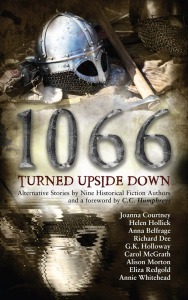
Meet the authors:
 Anna Belfrage is the successful author of eight published books, all of them part of The Graham Saga. Set in 17th century Scotland, Virginia and Maryland, this is the story of Matthew Graham and his wife, Alex Lind – two people who should never have met, not when she was born three centuries after him.
Anna Belfrage is the successful author of eight published books, all of them part of The Graham Saga. Set in 17th century Scotland, Virginia and Maryland, this is the story of Matthew Graham and his wife, Alex Lind – two people who should never have met, not when she was born three centuries after him.
Presently, Anna is hard at work with The King’s Greatest Enemy, a series set in the 1320s featuring Adam de Guirande, his wife Kit, and their adventures and misfortunes in connection with Roger Mortimer’s rise to power. The first two books of the series, In the Shadow of the Storm and Days of Sun and GloryDays of Sun and Glory are now available.
For more information about Anna and her books, please visit her website. If not on her website, Anna can mostly be found on her blog.

Joanna Courtney cut her publication teeth on short stories and serials for the women’s magazines before signing to PanMacmillan in 2014 for her three-book series The Queens of the Conquest about the wives of the men fighting to be King of England in 1066.
Her fascination with historical writing is in finding the similarities between us and them – the core humanness of people throughout the ages – and her aim with this series is to provide a lively female take on an amazing year in England’s history. She lives in Derbyshire, England.
Connect with Joanna on Twitter (@joannacourteny1) and visit her Website.

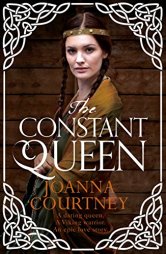


 Helen Hollick lives on a thirteen-acre farm in Devon. Born in London, Helen wrote pony stories as a teenager, moved to science-fiction and fantasy, and then discovered historical fiction. Published for over twenty years with her Arthurian Trilogy, and the 1066 era she became a ‘USA Today’ bestseller with her novel about Queen Emma TheForever Queen UK ttitle A Hollow Crown.) She also writes the Sea Witch Voyages, pirate-based nautical adventures with a touch of fantasy.
Helen Hollick lives on a thirteen-acre farm in Devon. Born in London, Helen wrote pony stories as a teenager, moved to science-fiction and fantasy, and then discovered historical fiction. Published for over twenty years with her Arthurian Trilogy, and the 1066 era she became a ‘USA Today’ bestseller with her novel about Queen Emma TheForever Queen UK ttitle A Hollow Crown.) She also writes the Sea Witch Voyages, pirate-based nautical adventures with a touch of fantasy.As a supporter of Indie Authors she is Managing Editor for the Historical Novel Society Indie Reviews, and inaugurated the HNS Indie Award. Connect with Helen through her Website, Blog, Facebook, Twitter (@HelenHollick), and through her Amazon Author’s Page.
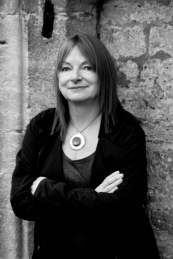
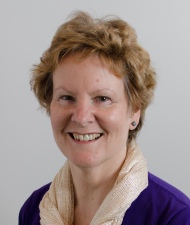
Alison Morton is the author of the acclaimed Roma Nova alternative history thrillers INCEPTIO, PERFIDITAS, SUCCESSIO and AURELIA (currently shortlisted for the 2016 Historical Novel Society Indie Award). Her fifth book, INSURRECTIO, (HNS Editor’s Choice) was published in April (http://alison-morton.com/books-2/insurrectio/)
Connect with Alison on her Roma Nova website, Facebook author page, Twitter (@alison-morton@alison-morton), and
Goodreads.


Annie Whitehead is a history graduate and prize-winning author. Her novel, To Be A Queen, is the story of Aethelflaed, daughter of Alfred the Great, who came to be known as the Lady of the Mercians. It was long-listed for the Historical Novel Society’s Indie Book of the Year 2016 and has been awarded an indieBRAG medallion. Her new release, Alvar the Kingmaker, which tells the story of Aelfhere of Mercia, a nobleman in the time of King Edgar, is available now. Connect with Annie through her Website, Blog, and Amazon Author’s Page.
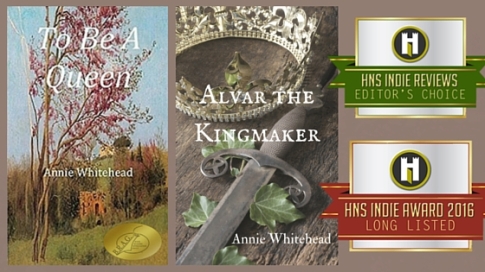







Thank you so much. You wrote it up exquisitely. I owe you a drink when we meet. Carolxx
Sent from my iPad
LikeLiked by 2 people
Thank you! And I’ll not say no xx 🙂
LikeLiked by 1 person
[…] Here’s a great post about the new book out by a whole list of authors. Cryssa Bazos is a 17th century enthusiast but writes this post highlighting this book about what might have happened in 1066 in an alternate reality. Check out 1066 Turned Upside Down. It’s next on my list of books I simply must read. Click through and Enjoy! […]
LikeLiked by 1 person
Hi Cryssa! I’ve reblogged this over on my site http://www.elainecougler.com/blog so come visit. Great post and great looking book!
LikeLiked by 2 people
Thanks Elaine. I will.
LikeLiked by 1 person
Thank you Elaine – how very kind, much appreciated
LikeLiked by 1 person
Very well done:) It’s a neat idea, and while I don’t go in for alternate history much, this was intriguing:)
LikeLiked by 2 people
I think it depends on the degree of alternate Mark. Something where factual history is changed beyond recognition, or not even plausible is not appealing, but we have tried to follow a ‘what if things had been different’ i.e plausible difference. What if Harold had not become King in the first place, what if Hardrad had won – the sort of thing we all talk about as general discussion.
LikeLiked by 1 person
What I really appreciated about the anthology were the author notes about what actually happened, because the narratives felt so authentic that someone who wasn’t well versed in the historical record would believe they were true to the history.
LikeLike
Thank you Cryssa for all your hard work!
LikeLiked by 1 person
Very happy to help get the word out. It’s an excellent anthology.
LikeLike
[…] with many of the authors about what inspired them to create this anthology. If you missed Part 1, click here to […]
LikeLike
[…] royal scandal and ends with regicide. She contributed to an anthology of alternative stories, 1066 Turned Upside Down, and her third novel, also set in Mercia, is scheduled for release later this year. She is a […]
LikeLike
[…] Check out my interview with the authors in Spotlight: 1066 Turned Upside Down. […]
LikeLike